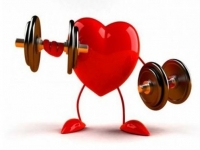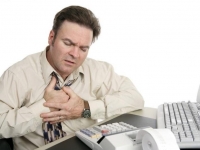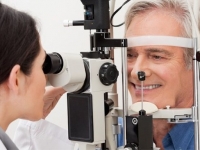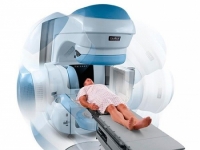Be careful: spring exacerbation of cardiovascular disease
 Cardiovascular disease is called a misfortune of the 21st century, and even healthy people in the spring-autumn season need to pay more attention to their health. Ukraine loses about 500 thousand people every year due to cardiovascular diseases. It is more than infectious, oncological and other diseases, even taken together.
Cardiovascular disease is called a misfortune of the 21st century, and even healthy people in the spring-autumn season need to pay more attention to their health. Ukraine loses about 500 thousand people every year due to cardiovascular diseases. It is more than infectious, oncological and other diseases, even taken together.
How do illnesses manifest in the spring?
People who are sick with cardiovascular disease, especially in the spring, feel:
changes in heart rate;
swelling of the legs;
pain behind the thoracic cavity giving the left arm and neck (it can occur with psychological and physical activity, accompanied by general weakness, numbness and pale skin);
dyspnea and nausea;
dizziness, accompanied by noises in the ears;
weakness in the half of the body;
visual impairment;
“Swallowing” the words when talking.
These symptoms may indicate the most common cardiovascular disease:
hypertension;
coronary heart disease;
cardiomyopathy;
heart failure;
heart valve defects;
peripheral arterial disease;
inflammatory heart disease;
disturbance of heartbeat rhythm;
stroke and cerebrovascular disease;
infarct.
The best defense of your health is the prevention of diseases
To reduce the risk of exacerbation of cardiovascular disease, follow these guidelines:
Fill your diet with foods that contain predominantly fiber and a minimum of fats. These are fruits, vegetables and cereals.
Reduce the level of alcohol consumption;
Leave smoking;
If arterial pressure is elevated, try to normalize it;
If there is overweight, work on reducing the amount of fatty tissue;
Take 30 minutes each day for physical activity. It may even be an elementary outdoor walk.
Try to reduce stress.
It is easy to identify the main risk factors from the list. These are: low physical activity, disastrous habits, high blood pressure, overweight, frequent stress. Also, people with diabetes and high cholesterol are at risk of developing cardiovascular ailments. People who are more prone to such illness become older.
Even healthy people need at least once a year to undergo a survey. Prevention and treatment of early stage disease is a better alternative to lifelong struggle against chronic diseases.
What to do if it has become bad?
The answer is simple – you need to call for emergency medical assistance. But while she is on the road, it is necessary to provide the person with first aid. If you are suffering from cardiovascular diseases, then first of all in the first-aid kit should be: aspirin, corvalolum, validol, nitroglycerin.
Aspirin is first aid if you have symptoms of a heart attack or a stroke. A stroke can be detected by severe headache, visual impairment, speech and movement. To prevent the situation, you need 325 mg of aspirin put under the tongue. The heart attack signals a sharp pain in the left part of the sternum and heart rhythm abnormalities. In this case, nitroglycerin will be effective.
Nitroglycerin in the amount of one or half pills must be put under the tongue until complete resorption with heart attacks, angina pectoris and infarction.
Validol and Corvalol are good assistants for stress. And the latter is also an antispasmodic remedy. Usual dosage – 30-40 drops per piece of sugar.
Our health is in our hands, we have the necessary knowledge and resources to protect it. Let’s take advantage of these opportunities.



